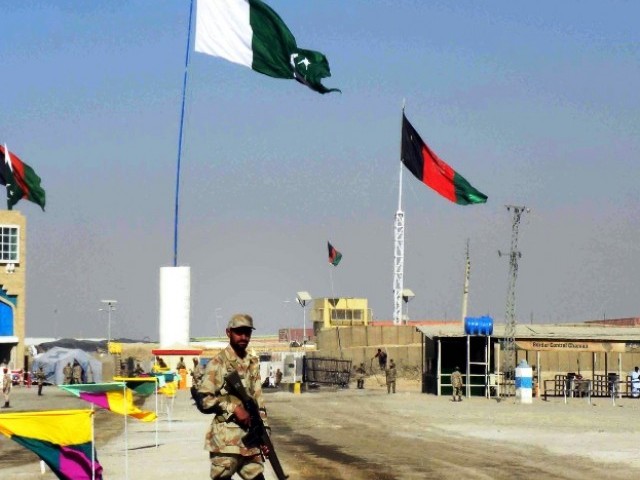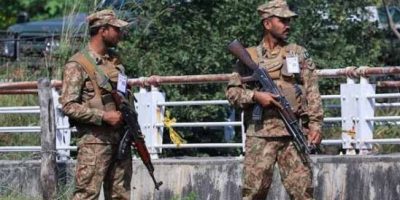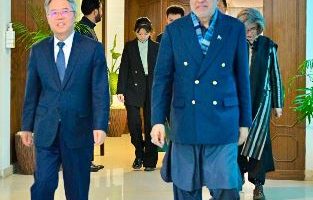Pakistan, Afghanistan to determine causes of mistrust

BEIJING, 07 SEP, (DNA) – Pakistan and Afghanistan have agreed to determine the causes of mistrust and avoid the blame game in the future under a Memorandum of Trust, Chinese media has reported.
The agreement, when finalized, would restore trust and confidence between Kabul and Islamabad and could help revive the peace dialogue between Afghanistan and the Taliban which Islamabad had brokered.
The consensus to stop blaming each other was reached during a meeting between Afghan President Asraf Ghani and Pakistan’s top security adviser Sartaj Aziz who visited Kabul on Friday.
Aziz was in Kabul to attend the ministerial conference of the Regional Economic Cooperation Conference on Afghanistan (RECCA). During his visit, Aziz met with Afghan officials on the peace process with the Taliban and other bilateral issues.
The two sides also agreed to check the activities of elements in both countries that are against the peace process and who, for reasons of their own, are trying to strain ties between the two countries, said analysts.
Analysts said with the restoration of the trust between the two countries, the suspended peace negotiations between the Afghan government and the Taliban could now be restarted.
During his talks with Ghani and other Afghan officials, Aziz had a five-point agenda that included “Pakistan’s commitment to facilitating an Afghan-led and Afghan-owned peace and reconciliation process.”
Ghani has agreed to consider Pakistan’s proposal on revival of the peace talks and promised to discuss it with his allies in Afghan’s national unity government.
In his remarks broadcast on Saturday, Aziz said Pakistani and Afghan officials will hold detailed discussions on options to bring the peace talks back on track as they believe this is the only option to find a solution to peace and security in Afghanistan.
All regional and international stakeholders have stepped up diplomatic efforts to push for the resumption of the talks. They said this is the only way for Afghanistan to solve the Taliban insurgency that has been going on for years. The Taliban had refused to sit down with the government of former Afghan President Hamid Karzai during his nearly 13-year rule despite Karzai’s repeated requests.
However, with the new unity government in Kabul, Pakistan has encouraged the Taliban leaders to join the intra- Afghan dialogue.
The Taliban participation in the face-to-face talks with Kabul was seen as a major change in their approach and an important development was their willingness to continue the process.
A senior Pakistani official said that an eight-member Taliban delegation from the powerful Leadership Council had, in fact, arrived in Islamabad to attend the second round of the talks.
But Pakistan postponed the second round of talks upon the request of the Taliban after the militant group confirmed the death of their supreme leader, Mullah Mohammad Omar, on July 31.
Pakistan had hosted the first round of the talks on July 7 and the second round was scheduled to be held on July 31, the same day the Taliban said their leader has passed away. The Taliban had requested for the postponement of the talks as they had focused on the election of a new leader.
But the situation turned worst when the Taliban carried out several attacks, including inside Kabul, under the new leader, Mullah Akhtar Mansoor, which had gloomed the mood in Kabul about the talks. The attacks led to the cancellation of the peace negotiations as President Ashraf Ghani himself announced he will not ask for Pakistan’s role in the future for the dialogue with the Taliban.
The Taliban attacks triggered the revival of claims by Kabul that Afghan Taliban insurgents who carried suicide attacks in Afghanistan were using Pakistani soil in planning the attacks, a charge that has been firmly denied by Pakistani leaders.
Islamabad has insisted that the Pakistani Taliban have crossed into Afghanistan and operated from there.
Analysts said that now that Pakistan and Afghanistan have decided make positive moves to restore trust, the peace dialogue can move on under a friendly environment. =DNA
=========
Related News

Pak conflict with India, Afghanistan may escalate into clashes
American think tank warns rising regional flashpoints could threaten global peace next year Centreline ReportRead More

Deputy PM reaffirms Pakistan’s support for One-China policy to envoy
ISLAMABAD: /DNA/ – Deputy Prime Minister/Foreign Minister Senator Mohammad Ishaq Dar @MIshaqDar50 received Ambassador Mr.Read More


Comments are Closed